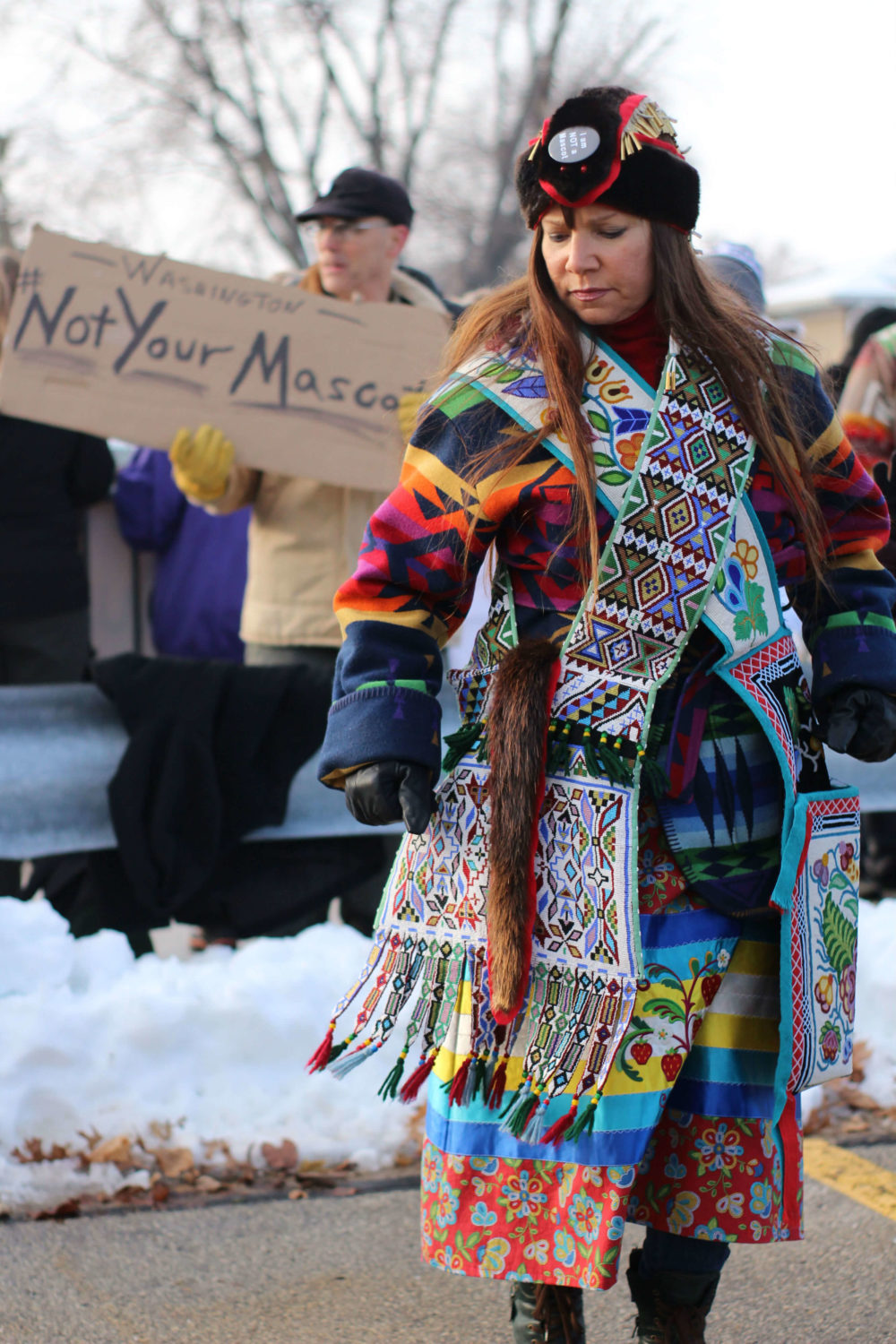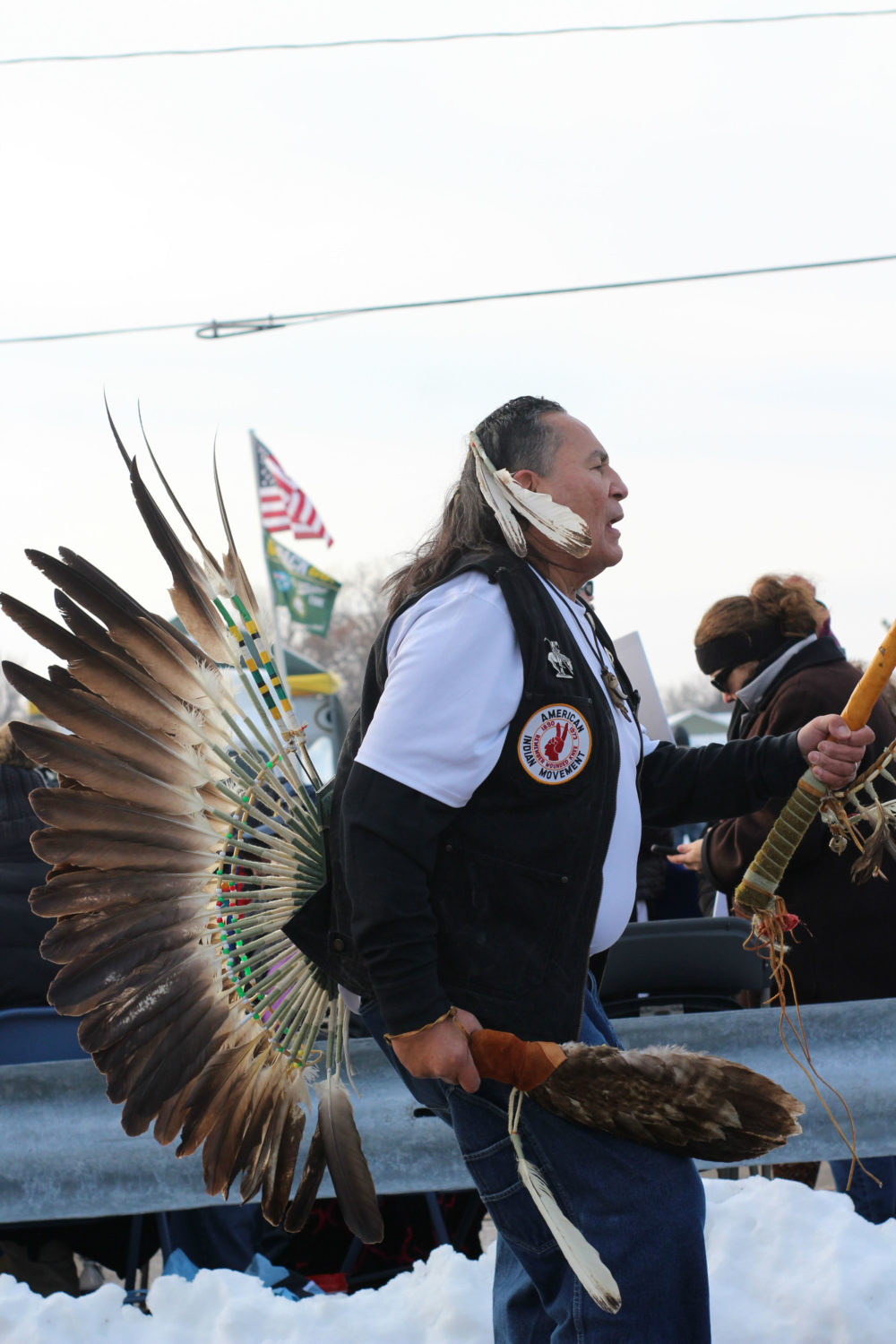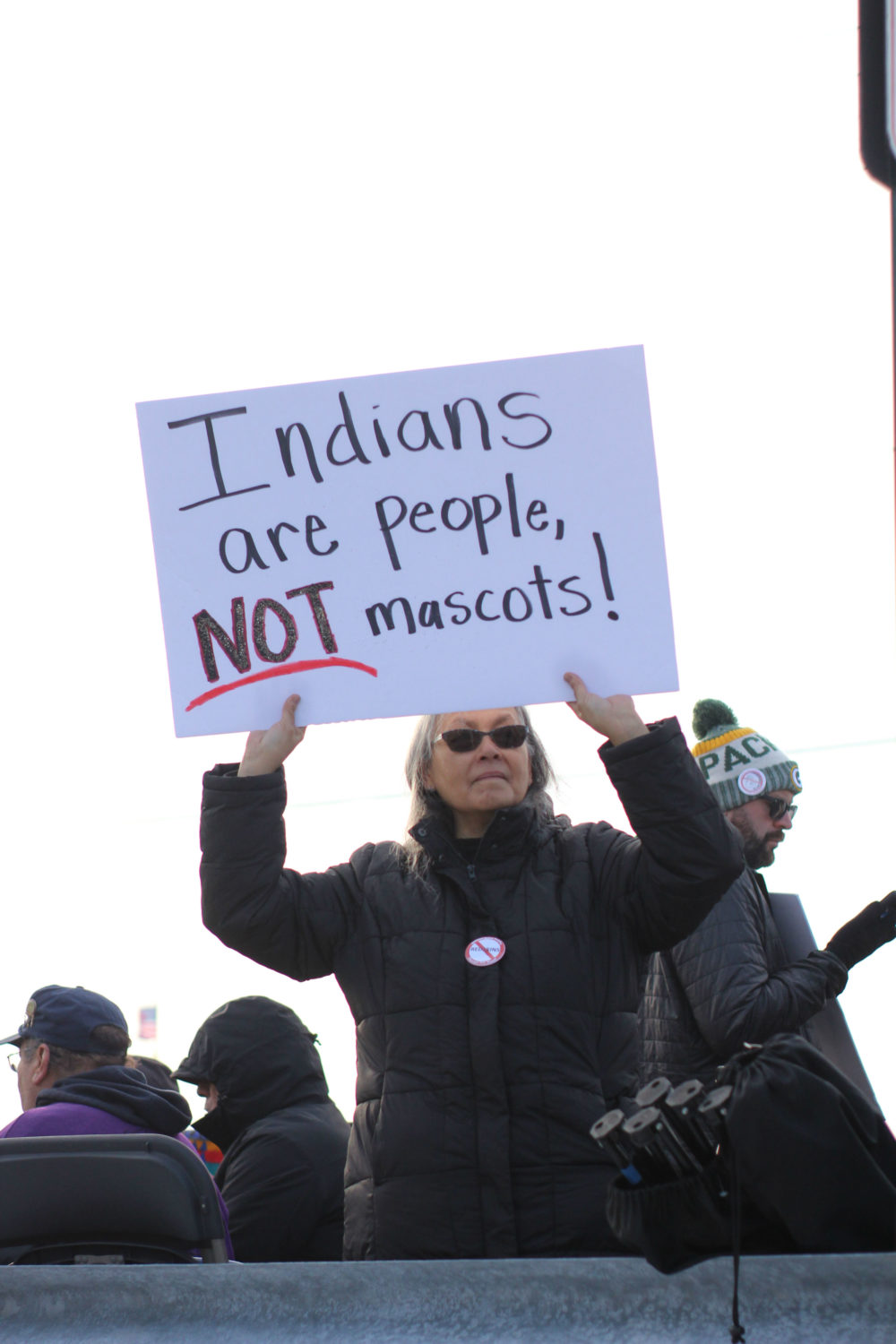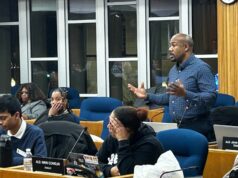About 80 people gathered at the southwest corner of Lambeau Field Sunday morning to protest the arrival of the Green Bay Packers’ opponent from Washington, which retains a mascot that is an offensive racial slur against Native Americans.
Holding signs like “Indians are people, not mascots,” “Our blood is red, our skin is not,” and “R-word = N-word,” protesters chanted “Change the name!” as three busses conveyed the Washington players into the stadium and Packer fans filed by.
“I just wanted to raise awareness, how the name is racist,” said Cayden Byington Smith, a junior at Madison West who made the trip to Green Bay with a handful of students and parents. “It’s not a good fit. And it’d just be easy to change it. It’s not that hard.”
Byington Smith, who is a member of both the Oneida and Choctaw Nations, said he’s one of the only Native American students in most of his classes, and that his classmates don’t always understand the issue.
“They don’t know the meaning of the word ‘redskin,’ the racism, the harm behind the word,” he said.

Daniel Crowsee Thomas, an Oneida Nation member who lives in Oneida, came with regalia and danced as a drum group played.
“This word goes back to a time during genocide and when the (American) expansion was coming on, where people saw native people as less than human,” he said between songs. “They called us all sorts of different kind of names that raised themselves higher, for themselves as superior beings.”
Washington team owner Dan Snyder has resisted pressure to change the name, citing the history of the franchise, founded as the Boston Braves in 1932.
Thomas said he’s optimistic the change will come, though.

“If they understood where the name came from, I think in a little time of meditation and talking with their higher power, God, I would believe that they would understand that the millions of native people that were killed under the name and hate names of redskin … those were done during a hate time,” he said. “I would say that these people would come to a mindset that would change, an attitude that would change and see that these words are really hurtful to native people.”
The issue with the Washington team mirrors issues at high schools in Wisconsin, where 31 high schools still use Native American mascots like Indians, Chiefs and Warriors. A Wisconsin Association of School Boards resolution, passed by a number of school districts, calls on all those schools to change their mascots.
The Menomonee Falls Board of Education, in fact, will vote Monday night on whether to change its “Indians” mascot. Mark Denning, a member of the Oneida nation who lives in nearby Muskego, came to Green Bay to highlight the parallels.

Denning said it’s not just about hurt feelings.
“It has been shown by studies in higher education that these are detrimental to young people’s self esteem, grade level achievement and also graduation rates,” he said. “There’s been a lot of growth. It’s no longer just people on a bar stool with an opinion, ‘Is this right or is it wrong?’, where it was years ago. This is very much a generational moment where people have facts and science on their side.”
He also said he feels the mascots contribute, however indirectly, to the pervasive problem of missing Native women and girls.
“The very properties that make for a victim, a young man or a young woman to be trafficked, are they same properties that happen in high schools or even professional sports teams like this,” he said. “Let’s groom a young person with low self esteem. Let’s groom a person to not appreciate their school. Let’s groom a person to kind of move away from sports. It’s a very insidious thing.”
Denning’s niece Nicky Warnke, who also brought her six-year-old daughter Marissa, is optimistic that change is coming.
“They’ve been changing,” she said, adding that she thinks the Washington NFL team could make a change “any time now.”
The Oneida Nation is a major sponsor of the Packers and did not officially participate in the protest, but encouraged its members to exercise their freedom of expression. Meanwhile, the Oneida Nation displayed a 30-second video in the stadium during halftime highlighting the diversity within the Oneida people.
“A lot of the problem is ignorance,” Denning said. “A lot of the problem is not being visible. So we are creating visibility in front of Lambeau Field, in a very small area. As you can see, we’re confined,” he said, motioning to the barricade that held the protesters to a small area along a parking lot.” There’s just people talking that are visiting with each other and smiling. But there’s people drinking beer 800 hundred feet from here with no check on it, getting drunk, yelling at folks, yelling at women as they go by, and no one controls them. We have to be controlled. We’re sober, we’re healthy, we’re here for a good cause, but 800 feet (away), there’s no social control. That’s what’s going on here. That’s exactly what’s wrong. And we’re here to expose that.”


































